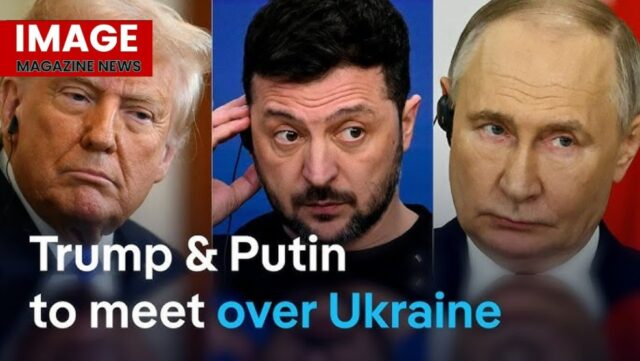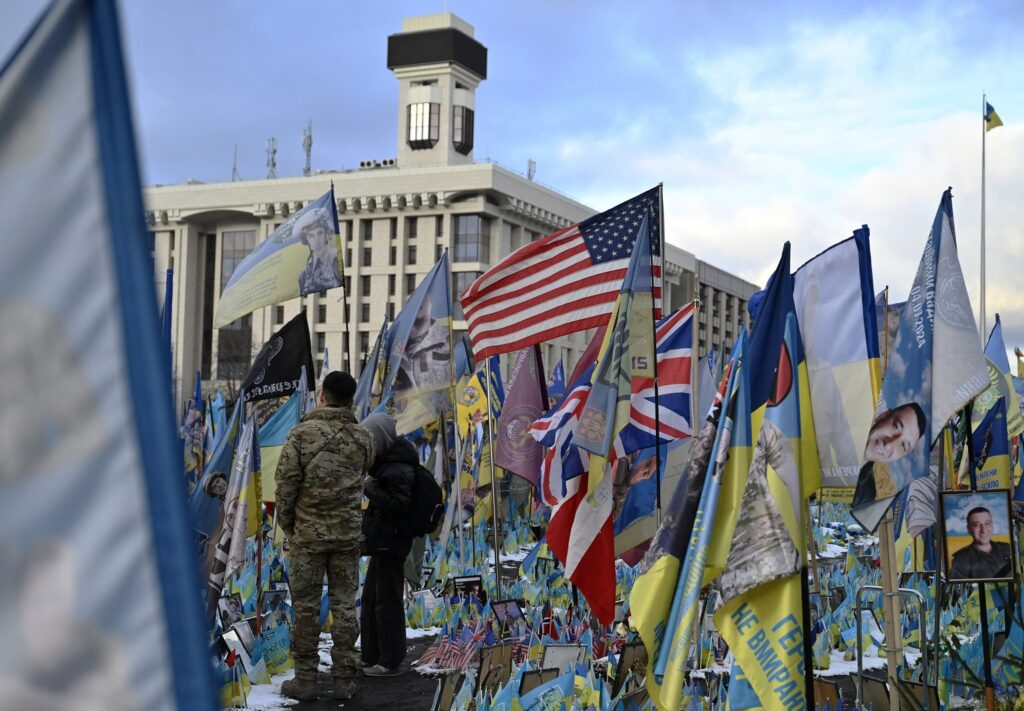
U.S. President Donald Trump has announced the immediate commencement of direct peace talks with Russian President Vladimir Putin, sparking concerns among Ukraine and its European allies. The announcement came after a phone call between Trump and Putin, during which both leaders agreed to initiate negotiations to end the nearly three-year war in Ukraine.
Trump’s decision to engage Moscow directly, without initially involving Ukrainian President Volodymyr Zelenskyy, has raised alarm bells across Europe. The Ukrainian government, along with key European nations, has demanded inclusion in the talks to ensure Kyiv’s interests are represented.
“I think we’re on the way to getting peace,” Trump stated, though he did not specify whether Ukraine would be directly involved in the negotiations. Excluding Kyiv would align with Putin’s longstanding position that Ukraine should not have a role in determining the terms of peace. The move represents a stark departure from previous U.S. policy under former President Joe Biden, which emphasized the principle of “nothing about Ukraine without Ukraine.”
Reactions from Ukraine and Europe
Following Trump’s call with Putin, the U.S. president also spoke with Zelenskyy. The Ukrainian leader later stated that the two discussed “opportunities to achieve peace” and the readiness of their respective teams to work together. However, European leaders voiced concerns that any talks should include Ukraine and uphold its sovereignty.
A joint statement from the foreign ministers of France, Germany, Poland, Italy, Spain, the U.K., Ukraine, the European Commission, and the European External Action Service emphasized that any negotiations should place Ukraine in a position of strength. “Ukraine and Europe must be part of any negotiations,” the statement read.

Genya Savilov/AFP via Getty Images
EU foreign affairs chief Kaja Kallas reinforced this stance, stating, “Ukraine’s independence and territorial integrity are unconditional.”
Planned Diplomatic Meetings
Trump confirmed that he would meet Putin in Saudi Arabia, though no date has been set. Meanwhile, a high-level U.S. delegation, including Vice President JD Vance and Secretary of State Marco Rubio, is scheduled to meet with Zelenskyy at the Munich Security Conference.
In a further indication of U.S. diplomatic engagement, Ukraine-Russia envoy Keith Kellogg will embark on a 10-day visit to Germany, Belgium, and Ukraine to discuss the framework of potential peace agreements.
Concerns Over U.S. Policy Shift
The Trump administration’s shift in policy was further underscored by Defense Secretary Pete Hegseth’s recent remarks in Belgium, where he acknowledged that Ukraine is unlikely to reclaim all its occupied territories and will not receive NATO security guarantees in any peace agreement. “The bloodshed must stop, and this war must end,” Hegseth stated, signaling a pragmatic—if controversial—approach to negotiations.
Critics argue that Trump’s overtures to Putin could pressure Ukraine into making territorial concessions. Former National Security Advisor John Bolton called the approach a “sellout” and a de facto surrender to Putin. “Trump has effectively surrendered to Putin on Ukraine,” Bolton wrote on social media.
Oleksandr Merezhko, chair of Ukraine’s parliamentary foreign affairs committee, also voiced concerns. “It’s a bad sign that he has talked first to Putin, not to Zelenskyy,” he noted, warning that such moves could embolden Moscow.
Russia’s Response and Next Steps
The Kremlin confirmed Trump’s conversation with Putin, with Russian spokesperson Dmitry Peskov stating that both leaders agreed on the need for an “early end to hostilities.” However, Peskov reiterated Russia’s stance that a long-term settlement must address what Moscow sees as the root causes of the conflict—potentially including Ukraine’s NATO aspirations and control over contested territories.
Despite international skepticism, both Moscow and Kyiv appear to be preparing for negotiations. Russia and the U.S. recently finalized a prisoner exchange, which Trump hailed as a goodwill gesture to facilitate peace talks. Meanwhile, Zelenskyy met with U.S. Treasury Secretary Scott Bessent to discuss potential U.S. investment in Ukraine’s mineral resources—a move that could strengthen Ukraine’s bargaining position.
While the road to peace remains uncertain, the coming weeks are expected to bring further developments as both sides maneuver for leverage in the talks. The outcome of these negotiations could reshape the geopolitical landscape and redefine the balance of power in Eastern Europe.
Source: TheWallStreetJournal



